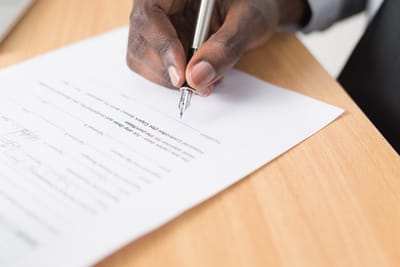POWER OF ATTORNEY - NOTARY SIGNING SERVICE PRETORIA
Sign Power of Attorney before Notary. Legalise for use anywhere in the world.

The notary should witness your signature, add a statement confirming why they are certifying this and also date the certification.
Documents of this nature are often used when dealing with the purchase or sale of an overseas property, managing the estate, acting on behalf of a company internationally and for many other general purposes. For guidance on the legalisation or apostille of a power of attorney please contact us.
Submit Online Quotation Form to get quotation for the Notarisation and Legalisation of your Power of Attorney.
Get a Quotation
Notary Costs
What is a Notary Public?
WhatsApp - Talk to Us
What Is A Power of Attorney?
A power of attorney is a legal document authorising someone to act on your behalf.
A power of attorney is a legal instrument that grants someone the authority to act on your behalf. Commonly referred to as a letter of authorisation, a power of attorney is a widely used document that is created by the person granting the authority, known as the "donor" or "grantor." It outlines the specific powers that the appointed "attorney" is authorised to carry out and specifies the duration of those powers.
Although each country has its own unique templates and wording for powers of attorney, the general structure of the document is universal. Some countries require that the document be drafted in a bilingual format or in the country's local language. Additionally, different countries may have varying requirements for the execution of the power of attorney, such as including a passport-sized photo or a copy of the passport or the presence of at least two witnesses.
To ensure compliance with local laws, it is strongly recommended that lawyers in the country where the power of attorney will be used be engaged to draft the document. These lawyers will provide instructions on the proper steps to take when signing the document.
Reasons Why Notarising and Apostilling a Power of Attorney Document May Be Necessary
If you plan on using a power of attorney in a foreign country, you will need to have it notarised. Depending on the country, you may also need to have it apostilled or authenticated and, in some cases, further legalised by the embassy in the country where it will be used.
If you plan on using a power of attorney in a foreign country, you must have it notarised. Depending on the country, you may also need to have it apostilled and, in some cases, further legalised by the embassy in the country where it will be used.
The purpose of notarisation and apostille is to ensure that the document is valid and executed correctly. When notarising a power of attorney, the notary public will witness the signature of the person granting the power of attorney and confirm that they have the necessary capacity to issue the document. If you sign on behalf of a company, the notary public will also confirm the company's existence and that you have the necessary authority to bind and represent the company.
You may need notarisation and an apostille stamp for various reasons, such as purchasing or selling an overseas property or vehicle, managing property, acting on behalf of a company internationally, and other reasons.
A power of attorney can be both general and specific or limited. A general power of attorney grants broad powers to the attorney and covers a range of actions. A specific or limited power of attorney only authorises the attorney to carry out a particular act, and the power of attorney is terminated once the act is completed.
Power of attorney documents requires notarisation by a notary public before being submitted to The High Court In South Africa or DIRCO for an apostille or authentication certificate.
The Hague Convention introduced apostille stamps in 1961 as a form of legalisation for various types of documents, including power of attorney. Apostille certificates are accepted by over 120 member countries of the Hague Convention.


